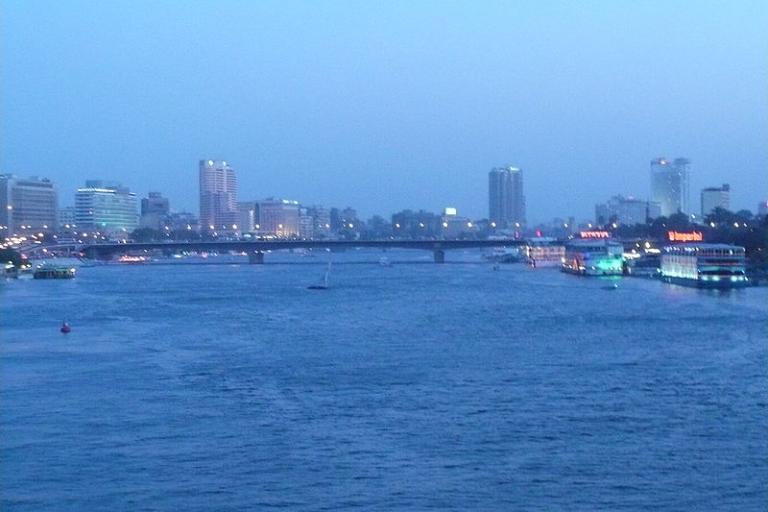
My wife and I lived for roughly four years in Egypt, in a southern suburb of Cairo called Ma‘adi that lies on the east bank of the Nile River. We didn’t plan to be there so long; it simply worked out that way. We were doing reasonably well financially, partly because of the remarkable generosity of my brother in connection with the family business and partly because my wife, to our surprise, walked right into a good job teaching at Cairo American College. (I was studying. For one year, I served as a private tutor to the daughter of the exiled Shah of Iran. In our final year there, I won a fellowship — essentially, I understand, Fulbright money — from the Center for Arabic Study Abroad, which was and is pretty much the finishing school for American Arabists.) But also, frankly, because we were having a wonderfully good experience there. Every day was fascinating, although also often challenging.
Twice, we went home during the summer. After all, Egypt is hot in the summer, and I could make a fair amount of money working for the family construction business.
I always found returning to Egypt just a bit depressing, though. To leave my parents and the rest of my family behind was rough, and, in those days, we didn’t have easy communication by telephone, let alone by email, and regular mail took weeks to reach us, if it even reached us at all. We called home only twice during those four years, and doing so was a major undertaking. (Even calling across Cairo was difficult, because the Egyptian telephone system back then was so bad.) The first time was when I received a telegram from my brother telling me that my father had suffered a heart attack. It took me twenty-four hours to get through via a telephone at the Ma‘adi post office. Only then did I learn that my father had survived. The second time was when our first child was born. And that, too, took prolonged effort — which was especially difficult because, at the time, I was suffering from hepatitis.
The most depressing part, for me, was typically the approach to Cairo airport after a summer in California, which, given our flight schedule, always took place at night. As I looked out the window, down on the poor and dimly lit neighborhoods over which we were flying, I would ask myself what I was doing. And then, when we hit the chaos of the airport itself — things are much, much, much better now; the Cairo airport today is clean and modern, whereas it was once completely disorganized and resembled a not very well kept warehouse — I was really feeling down.
But then we would climb into a taxi and begin the sheer, white-knuckle thrill of careening through the streets of greater Cairo (and sometimes on its sidewalks), weaving at high speed amid the traffic. And I would begin to think to myself, “I absolutely love this place!”











